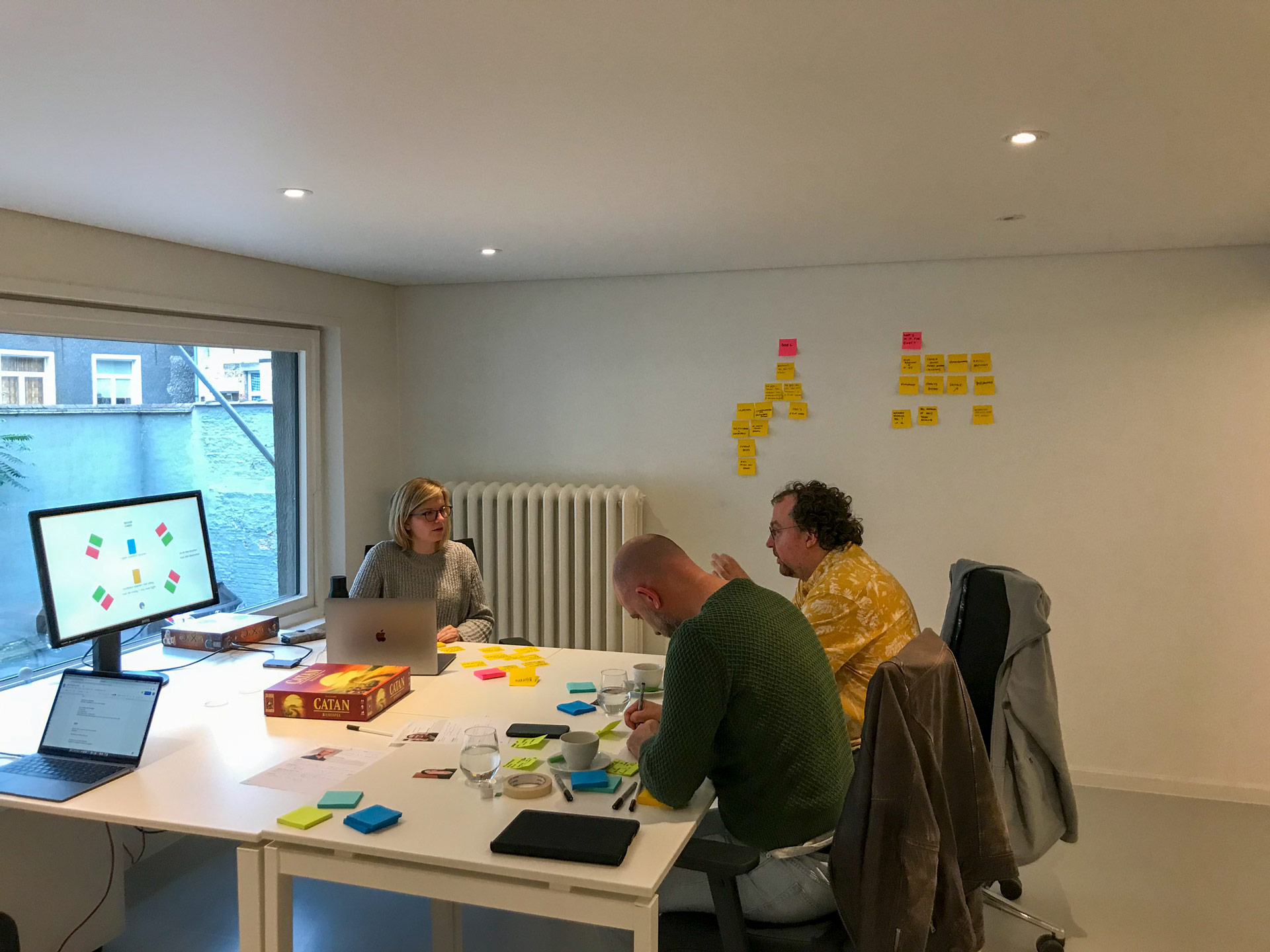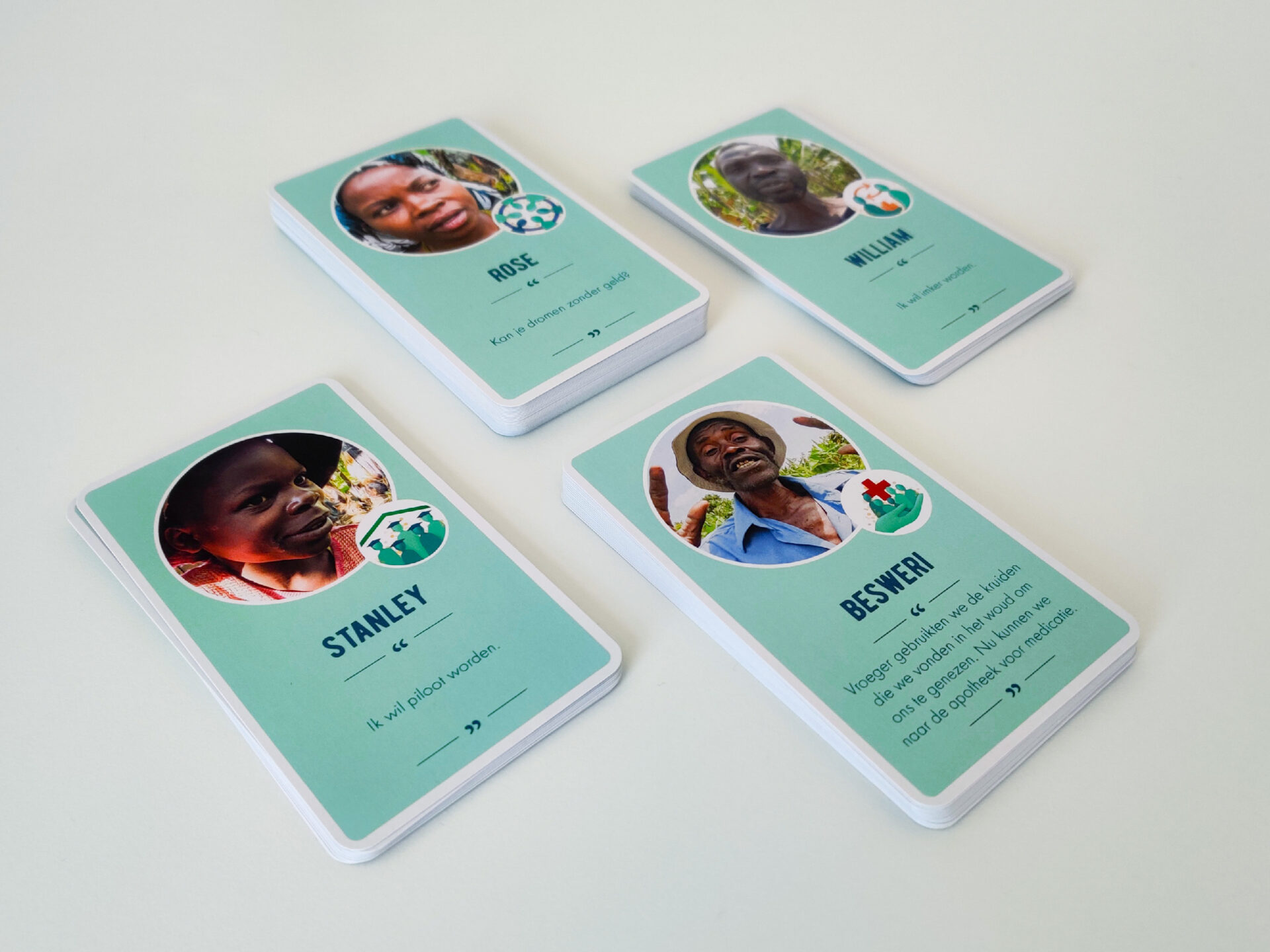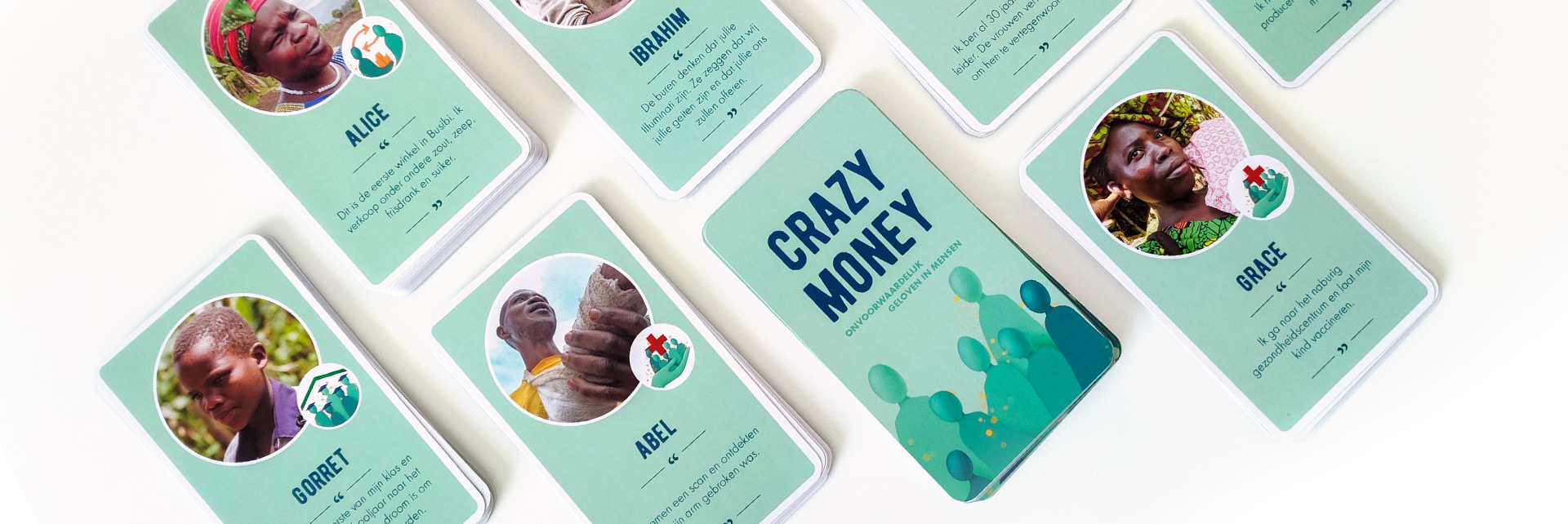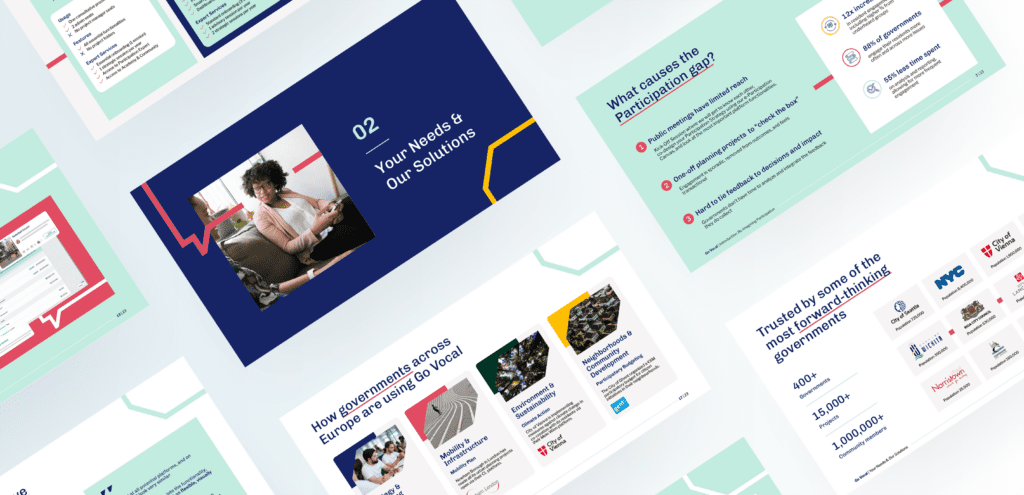Page content
Challenge
Eight is a Belgian non-profit organization that uses unconditional cash transfers to help people in Uganda out of extreme poverty. For 2 years they give a basic income to all inhabitants of a village, without asking anything in return.
Despite its scientifically proven effectiveness, this unconventional form of development aid raises many questions. We developed an educational game that will help Eight’s founders facilitate the discussion of unconditional cash transfers and encourage other organizations to follow the magnificent example of Eight.
We want to innovate the sector of development aid
– Maarten Goethals, Co-founder @ Eight
Co-creating the game
In order to fully understand the situation in which the educational game will be used, we spoke with a number of potential users. Some key takeaways from the interviews:
- Discussions and the exchange of ideas are very important. The target group prefers to learn from the experiences of others.
- The target group is very action-oriented. They want to be able to apply what they learn.
- There is often a time limit. It is therefore important that the game can also offer enough value within a short time frame.
During a co-creation session with the founders of Eight, we determined the goal of the game and the intended impact on the players. Once this was clear, we created the first version of the game during an extensive brainstorming session. The game concept was then further sharpened through iterative prototyping and testing.

How the game works
The game consists of several rounds. Each round focuses on a theme related to unconditional cash transfers:
- Scarcity
- Aid without conditions
- Aid without advice
- Evidence-based
- Digitization
- Empowerment

Players can earn points for each quiz question. When they answer correctly, they receive a card showing a resident of Busibi, the first village Eight provided with a basic income.
Each resident tells a unique story using a quote on the card. Players will learn the impact of unconditional cash on the life of this Busibi resident. Each person is also linked to one of the four ‘drivers of change’, the main pillars in which change is needed to get a community out of extreme poverty:
- Health
- Entrepreneurship
- Education
- Social collective action



The more points a player scores, the more “drivers of change” she/he collects. But that’s not the ultimate goal of the game. Getting to know the stories of the residents of Busibi gives them a new boost in confidence in the target group of their own projects. And by seeing the impact on the 4 “drivers of change” they gain new insights that can be applied to their own projects and organization.
A people-centric branding
The most important value of Eight is ‘to believe in people unconditionally’. This value is therefore intrinsically intertwined in the game. By giving unconditional cash to people in extreme poverty you give them a chance to determine their own future. The design of the game clearly reflects this people-centered mindset.












